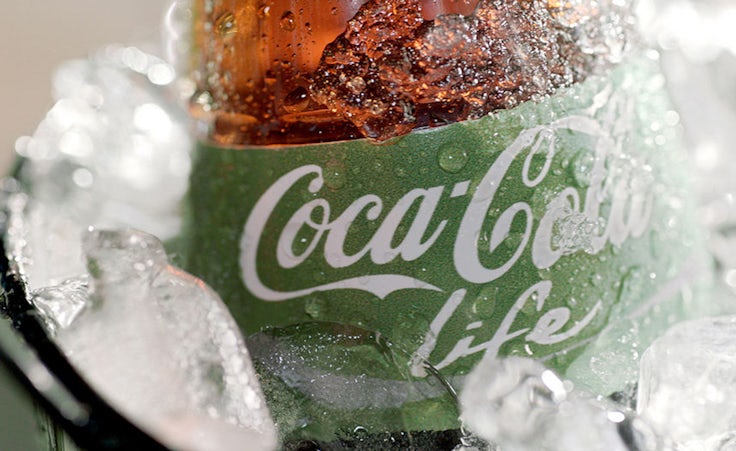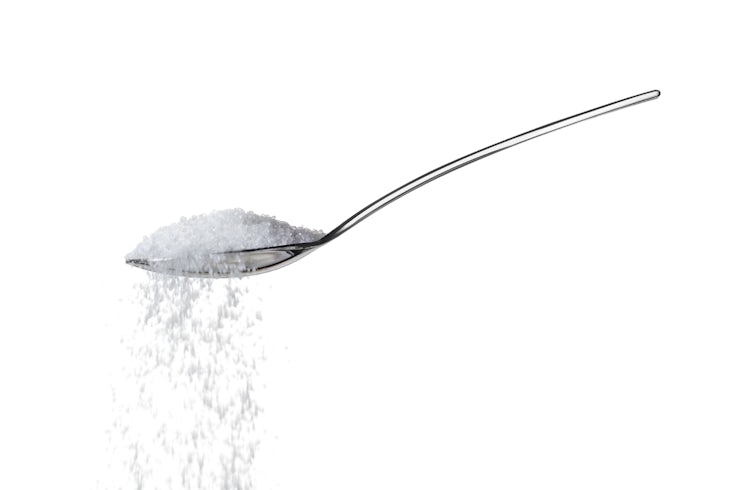Why developing low-sugar options is the route to beating regulation
Brands could face a new sugar tax and restrictions on marketing sugary foods from January, but some are already showing the best response is to offer healthier options that research shows consumers want.

Brands and retailers in England that promote food and drink with high levels of sugar could be hit by new regulations in the new year, as the government prepares to launch its strategy for tackling childhood obesity, promised in January.
Parliament’s health select committee this week urged the government to bring in a 20% tax on high-sugar drinks and to ban point-of sale-promotions and pre-watershed TV advertising of sweet foods, following a report by Public Health England (PHE) released in October.
Prime minister David Cameron has previously rejected the sugar tax proposal, despite high-profile support from celebrity chef Jamie Oliver and evidence that Mexico’s 10% tax has cut sugary drink consumption by 6%. The political pressure to increase regulation is growing, however.
Little attention has so far been given to what consumers think brands should be doing about the sugar content of food and drink. But according to research from Marketing Sciences 77% think manufacturers need to do more to reduce it, up 5% since 2014 and highest among those aged 35 and above. Over half (52%) of consumers today say they actively look for brands with lower sugar content, up 5% from 2014.
Two-fifths of people are concerned they eat too much sugar, with almost half of 18- to 34-year-olds saying they are worried. Half of consumers view sugar with as much concern as fat, unsure which is worse for their health. This may have been fuelled by prominent news reports and research over the past two years suggesting sugar is more harmful.
The public are neither in favour of a sugar tax nor opposed to it, however. Marketing Sciences’ study of 2,033 UK consumers finds that 35% agree and 36% disagree there should be a tax on high-sugar food and drink.
Brands react
Some brands have already responded to the increase in public concerns over how much sugar is in their diet. Restaurant chain Leon introduced a 10p levy on all drinks that contain sugar, following the launch of a petition from Jamie Oliver and Sustain, the alliance for better food and farming, that calls on the government to introduce a tax on sugary drinks.
In a post on Leon’s website, the restaurant says that it knows its 10p ‘sugar tax’ on drinks will not only help people to make healthy choices, but also “help to improve the damage that has already been done”.
Leon estimates it will raise £50,000 over the next year with the added charge. The money will be donated to the Children’s Health Fund, which was set up by Oliver and Sustain to improve the health and food education of children in the UK.
”We didn’t need to have much deliberation on adopting this tax and implementing it,” says Kirsty Saddler, brand and marketing director at Leon. “It’s not a decision that we have made from purely a business perspective. This is about our mission to make it easier for more people to eat well, and comes from a belief that we should be making a positive difference to people’s health and nutrition, and therefore what we may be offering them.”
Food chain Abokado, which has 26 stores in London, has also joined the 10p levy campaign, while other brands have adopted the approach of developing new low-sugar variants. Metcalfe’s Skinny popcorn has introduced a new flavour called Cinema Sweet that cuts sugar content by 67% using naturally sourced sweetener stevia.

Although it “doesn’t pretend to be a diet brand”, it does everything with a “conscious hat on”, according to managing director Max Rees.
“We take on board comments about sugar and salt and it’s something we are aware of,” he says. “We work closely with our suppliers and the [new product development] team will trial hundreds of different recipes to deliver on great taste using top-quality ingredients, while still offering lighter options. It’s a delicate balancing act, which takes time to get right.”
He adds: “Metcalfe’s Skinny was born from a public desire to [move] away from greasy and heavy snacks. We never claim to be a ‘diet’ product; it’s all about lighter, better options.”
Perhaps the most prominent example of all, it is just over a year since Coca-Cola launched Coca-Cola Life to target health-conscious consumers. This, too, uses stevia to create a drink with 37% less sugar than regular Coke. At present, the drink represents 2.43% of the total Coca-Cola portfolio, according to IRI data, which the brand says it is pleased with.
The political climate
Ian Twinn, director of public affairs at advertisers’ trade body ISBA, says: “A sugar tax isn’t the answer. The hike in price would have to be huge to change people’s behaviour and politicians won’t do that.”
Twinn compares the debate around sugary foods, as well as processed meats – which the WHO recently linked to an increased cancer risk – to that around alcohol brands and responsible consumption. The message ‘Enjoy responsibly’ is featured on packaging and advertising to stop the misuse of alcohol.
“Food is not in that position, but everyone knows that a balanced diet is important,” Twinn says. “This pronouncement from the WHO alone isn’t going to force brands to go along the ‘eat responsibly’ route, but there are lots of pressure groups that are taking a strong view about people’s diets and lifestyles – and the government is too.”
Tedstone at PHE says: “The challenge for [businesses] is to maintain growth and development, not just enabling more calories to be sold. The answer to this is not just producing more healthy products that appeal to health seekers in society, it’s about looking at the whole portfolio.”
The study shows 60% agree that taste is more important than sugar content when buying treats, so reformulation could be an option for brands.
Elaine Coppard, research director at Marketing Sciences, says: “Many consumers won’t change their habits, so the industry is in the front line to solve the problem. We’re increasingly seeing clients coming to us looking at options to cut sugar and investigating the effect that reformulation could have on taste, so we can play a meaningful role in addressing sugar consumption.”
Brands that are able to respond to consumers’ concerns about healthy eating with foods lower in sugar, while satisfying their taste for sweet treats, are likely to be the most successful at both protecting themselves from burdensome regulations and winning customers from brands that fail to act.






